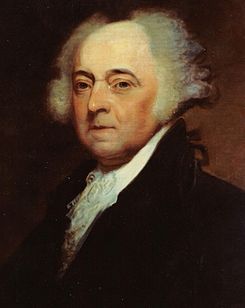“Punting the Pundits” is an Open Thread. It is a selection of editorials and opinions from around the news medium and the internet blogs. The intent is to provide a forum for your reactions and opinions, not just to the opinions presented, but to what ever you find important.
Thanks to ek hornbeck, click on the link and you can access all the past “Punting the Pundits”.
Follow us on Twitter @StarsHollowGzt
Trevor Timm: Republicans’ ‘plans’ for Isis would drag us into Iraq for another ground war
Do you hear that? It’s the sound of the groundwork being laid for US ground troops to return to Iraq for another indefinite war with no end game.
Republican presidential candidates (of which there now seem to be more than a dozen) have spent the past month ripping President Obama for his administration’s approach to the war against Isis, in which the US military has dropped tens of thousands of bombs, sent 3,000 troops back to Iraq, and killed over 12,000 people, all without any legal authorization. Predictably, the Republicans have no problem with the war technically being illegal, or the tens of thousands killed – only that we haven’t used more of our military weaponry yet.
The New York Times detailed many of the Republican candidates’ nebulous “criticisms” of the Obama administration, most of which assume a fantasy world in which Obama is not sending the US military to fight Isis at all, even though he’s authorized thousands of airstrikes per month in both Iraq and Syria. Most of the candidates, while competing with each other over who can sound more “muscular” and “tough”, are too cowardly to overtly call for what they likely actually want: another ground war in the Middle East involving tens of thousands of US troops.
Dean Baker: Pro-TPP arguments show desperation
If trade agreement supporters are going with their best sell, there’s clearly little to be said in its favor
The push for the Trans-Pacific Partnership (TPP) is reaching its final stages, with the House of Representatives soon voting on granting the president fast-track trade authority, which will almost certainly determine the pact’s outcome. The proponents of the TPP are clearly feeling the pressure as they make every conceivable argument for the deal, no matter how specious.
In the last few weeks, TPP advocates have repeatedly tripped up, getting their facts wrong and their logic twisted. This hit parade of failed arguments should be sufficient to convince any fence sitters that this deal is not worth doing. After all, if you have a good product, you don’t have to make up nonsense to sell it.
Leading the list of failed arguments was a condescending editorial from USA Today directed at unions that oppose the TPP because they worry it would cost manufacturing jobs. The editorial summarily dismissed this idea. It cited Commerce Department data showing that manufacturing output has nearly doubled since 1997 and argued that the job loss was due to productivity growth, not imports.
David Cay Johnson:
Free-market dogma has jacked up our electricity bills
Prices for electricity are higher in states that embraced market pricing and are likely to rise even more
A new analysis shows that people pay 35 percent more (pdf) for electricity in states that abandoned traditional regulation of monopoly utilities in the 1990s compared with states that stuck with it. That gap is almost certainly going to widen in the coming decade.
Residential customers in the 15 states that embraced wholesale markets paid on average 12.7 cents per kilowatt-hour last year versus 9.4 cents in states with traditional regulation. [..]
You might think that the higher prices in the 15 states with markets would encourage investment, creating an abundance of new power plants. That, at any rate, is what right-wing Chicago School economic theories on which the electricity markets were created say should happen. The validity of these theories, and flaws in how they were implemented, matter right now because Congress is considering a raft of energy supply bills that include some expansion of the market pricing of wholesale electricity. [..]
If unregulated markets are invariably better, as the Chicago School holds, why was 94 percent of new generating capacity built in traditionally regulated jurisdictions? Don’t owners and executives detest regulation? Why isn’t regulation hobbling investment?
One answer is that Wall Street prefers stability to volatility. Why would investors make risky bets when they could put their money into virtually guaranteed returns in those states that rely on traditional regulation of electricity prices?
David Goldblatt: The Fifa fiasco proves it’s time to dismantle football’s edifice of corruption
In comedy, football and politics, timing is everything and today’s events in Zurich have brought all three together with quite exceptional synchronicity. Just two days before Fifa’s annual congress and a fiercely contested presidential election, the Swiss attorney general’s office and their American equivalent in the Eastern District of New York have done what much of the football world has been longing for and launched separate criminal investigations into bribery, corruption and money laundering in world football in general and into the allocation of the 2018 and 2022 World Cups to Russia and Qatar in particular.
This is going to be good. There are going to be a lot of questions asked about who did what, who knew what and who got what. But important, tantalising and outrageous as the answers will no doubt be, it is worth taking a moment to ask two other questions. First, how did we get into the mess? Why is it that Fifa, as an organisation, has been so profoundly dysfunctional and incapable of reform? Second, what kind of Fifa are we going to replace this with, how we are going to make it happen and who, if anyone, is going to lead this? [..]
Reform should not be confined to chucking out the bad apples – it’s too late for that. Instead, Fifa’s constitution should be rewritten, specifying and intensifying the democratic and social obligations of its constituent members, and transforming its mode and rationale for awarding World Cups. This is the bare minimum that the situation demands. That neither candidate for the presidential election is running on anything close to this agenda is testament to how badly political reform is needed and how hard it is going to be to achieve.
Jeb Lund: Bernie Sanders doesn’t have to win the Democratic primary to do a lot of good
Bernie Sanders is running for president, settling your bet over what sticker you’re most likely to see on the back of a vintage Volkswagen for the next several years.
Ordinarily, we could stop here at the natural terminus for the proudly left-wing presidential contender – the joke. But at the risk of indulging that last bit of “hope” that wasn’t stamped out by watching the spiritual uplift of electing a black president in America be followed by obdurate meathead American racism and six years of global drone whack-a-Muslim, let us say this: there are reasons to feel good about Bernie Sanders, for all the many things he is not. [..]
This is probably overly optimistic, but this is a good time for democratic and grassroots activism. So maybe having millions of Americans – who might have dipped a toe in the Fight for 15 or in #BlackLivesMatter or in signing petitions for Dreamers or women’s rights – meet a candidate who speaks directly to them, is beholden to them and energizes them and then watch him inevitably lose because he lost the pre-primary of donor collecting will provide that other kick in the pants. Perhaps it’ll be the kick in the pants that tells Democrats that they can’t just vote every four years and hope for a candidate who gives telegenic speeches about some new branded synonym for change, then elect him or her to the top job in the land and find themselves stunned that, as it turns out, trickle-down politics doesn’t work any better than trickle-down economics.
Norman Solomon: Jeffrey Sterling vs. the CIA: An Untold Story of Race and Retribution
A dozen years before his recent sentencing to a 42-month prison term based on a jury’s conclusion that he gave classified information to a New York Times journalist, former CIA officer Jeffrey Sterling was in the midst of a protracted and fruitless effort to find someone in Congress willing to look into his accusations about racial discrimination at the agency.
ExposeFacts.org has obtained letters from Sterling to prominent members of Congress, beseeching them in 2003 and 2006 to hear him out about racial bias at the CIA. Sterling, who is expected to enter prison soon, provided the letters last week. They indicate that he believed the CIA was retaliating against him for daring to become the first-ever black case officer to sue the agency for racial discrimination. [..]
At the CIA and the Justice Department, authorities routinely depicted Jeffrey Sterling as a “disgruntled” employee. During interviews for “The Invisible Man,” he addressed how that depiction has played out for him: “I think the label ‘disgruntled’ came from the moment that I complained, in any aspect. I was not being part of the team. … People say that individuals play the race card. What about the other side of that? The race card was certainly being played with me. And you can say it was the white race card because I wasn’t white. They had all those cards. … And if there isn’t going to be a true, real, honest investigation with any veracity, the natural conclusion is going be ‘disgruntled.’ It’s a very easy label to place.”
 Welcome to the Stars Hollow Gazette‘s Health and Fitness News weekly diary. It will publish on Saturday afternoon and be open for discussion about health related issues including diet, exercise, health and health care issues, as well as, tips on what you can do when there is a medical emergency. Also an opportunity to share and exchange your favorite healthy recipes.
Welcome to the Stars Hollow Gazette‘s Health and Fitness News weekly diary. It will publish on Saturday afternoon and be open for discussion about health related issues including diet, exercise, health and health care issues, as well as, tips on what you can do when there is a medical emergency. Also an opportunity to share and exchange your favorite healthy recipes. 



 On this day in 1961,
On this day in 1961,  Born in London as Peter James Henry Solomon to a Jewish family, the only son of Harold Solomon and
Born in London as Peter James Henry Solomon to a Jewish family, the only son of Harold Solomon and  On this day in 1813,
On this day in 1813,  When Jefferson retired from the presidency in 1809, Dr. Benjamin Rush, a signer of the Declaration that Adams and Jefferson worked to create, took it upon himself to renew their suspended friendship. He had no success until 1811, when one of Jefferson’s neighbors visited Adams in Massachusetts. The neighbor returned to Virginia with the report that he had heard Adams say, “I always loved Jefferson, and still love him.” In response to these words, Jefferson wrote Dr. Rush: “This is enough for me. I only needed this knowledge to revive towards him all of the affections of the most cordial moments of our lives.” He asked Rush to persuade Adams to renew their correspondence. A letter from Adams was forthcoming, and they continued to write until their deaths.
When Jefferson retired from the presidency in 1809, Dr. Benjamin Rush, a signer of the Declaration that Adams and Jefferson worked to create, took it upon himself to renew their suspended friendship. He had no success until 1811, when one of Jefferson’s neighbors visited Adams in Massachusetts. The neighbor returned to Virginia with the report that he had heard Adams say, “I always loved Jefferson, and still love him.” In response to these words, Jefferson wrote Dr. Rush: “This is enough for me. I only needed this knowledge to revive towards him all of the affections of the most cordial moments of our lives.” He asked Rush to persuade Adams to renew their correspondence. A letter from Adams was forthcoming, and they continued to write until their deaths.
Recent Comments